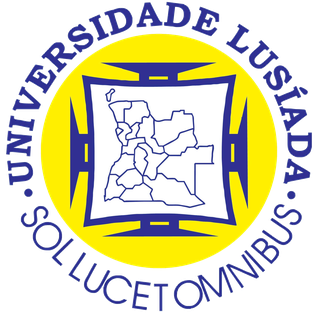
Viana do Castelo is a municipality and seat of the district of Viana do Castelo in the Norte Region of Portugal. The population in 2021 was 85,778, in an area of 319.02 square kilometres (123.17 sq mi). The urbanized area of the municipality, comprising the city, has a population of approximately 36,148 inhabitants, although the extended densely populated region reaches surrounding municipalities like Caminha and Ponte de Lima with a population above 150,000 inhabitants. It is located at the mouth of the Lima river, on the Portuguese Way path, an alternative path of the Camino de Santiago.
The Évora Football Association is the district governing body for all football competitions in the Portuguese district of Évora. It is also the regulator of the clubs registered in the district.
The Viana do Castelo Football Association is the district governing body for the all football competitions in the Portuguese Viana do Castelo District. It is also the regulator of the clubs registered in the district.

Hugo Miguel Ferreira Gomes Viana is a Portuguese retired professional footballer who played as a central midfielder. He is the current director of football of Sporting CP.
Juventud, a Spanish word meaning youth, or Juventude, its Portuguese equivalent, may refer to:
In 2005–06, FC Porto won the Championship for the 5th time in a row with 10 points of advantage over the runners-up S.L. Benfica. FC Porto also won the Portuguese Cup, playing in the final with Juventude de Viana and winning 7-4 and the Portuguese SuperCup, winning against Benfica in a two-legged final. These competitions are organized by Federação Portuguesa de Patinagem. In the European competitions, FC Porto was the runner up on the Champions League.

The Portuguese Roller Hockey First Division is the premier roller hockey league in Portugal. It was established in 1939 and Sporting CP were crowned as the first champions. Porto are the current champions and also the record winners, with 25 titles. The league is contested by 14 teams, with the top four teams qualifying for the following season's Rink Hockey Euroleague and the fifth to eighth placed teams qualifying for the World Skate Europe Cup. The bottom three teams are relegated to the second-tier Portuguese Roller Hockey Second Division.
The rink hockey World Club Championship is a worldwide competition with the best rink hockey teams. This competition was held for the first time in 2006, in Luanda, Angola.

The Angolan Roller Hockey Championship is the top tier Roller Hockey Clubs Championship in Angola.
The Roller Hockey African Club Championship was the biggest Roller hockey Clubs Championship in Africa.
The III African Roller Hockey Club Championship was the 3rd edition of the African Roller Hockey Club Championship organized by FARS. It was held in July 2010 in Pretoria, South Africa.

The Universidade Lusíada de Angola, also known as U.L.A. was an Angolan semi-professional basketball team which is named after its major sponsor, the Angolan Lusíadas University.
The Grupo Desportivo Juventude de Viana is a former basket club from Angola, based in Luanda's satellite town of Viana. Following the club's failure to participate in the 2014 women's league and cup due to financial reasons, Mecanagro, the club's major sponsor, announced that the club's basketball department had been discontinued. In January 2014, Universidade Lusíada announced that it would take over Juventude de Viana's basketball athletes and technical staff to form the women's wing of its own club. Until then, Universidade Lusíada only competed in the men's category.

Atlético Petróleos de Luanda is a multisports club from Luanda, Angola. The club's men's roller hockey team competes at local level, at the Luanda Provincial Roller Hockey Championship and at the Angolan Roller Hockey Championship. The roller hockey team of Petro Atlético has been the most titled team in Angola for many years. In recent years, its leadership has been successfully challenged by Juventude de viana, and by Académica de Luanda more recently.
Grupo Desportivo Juventude de Viana, formerly Enama de Viana, is an Angolan sports club based in the municipality of Viana, Luanda. The club has a men's roller hockey team competing at the local level, at the Luanda Provincial Roller Hockey Championship and at the Angolan Roller Hockey Championship. Additionally, the team has been a regular contestant at the African Roller Hockey Clubs Championship.

Beatriz Amélia Alves de Sousa Oliveira Basto da Silva was born in Anadia, Portugal in 1944 and majored in history at the University of Coimbra with the thesis of Historiografia - o Conceito de História em António Caetano do Amaral.
The 2014–15 CERH European League was the 50th season of Europe's premier club roller hockey tournament organised by CERH, and the 19th season since it was renamed from the European Champion Clubs' Cup to the CERH Champions League/European League.
The Angolan Roller Hockey SuperCup aka Supertaça João Garcia is an annual handball competition between the winners of the previous year's league champion and cup. In case the same team happens to win both the league and the cup, the match will be played between the league winner and the cup runner-up.
The Angolan Roller Hockey Cup is the second tier roller hockey competition in Angola, following the league. The annual competition is contested by all roller hockey clubs in the country in a head-to-head knock-out format.
The 2016–17 CERS Cup is the 37th season of the CERS Cup, Europe's second club roller hockey competition organized by CERH. Thirty teams from eight national associations qualified for the competition as a result of their respective national league placing in the previous season. Barcelos won the title for the second consecutive season.







